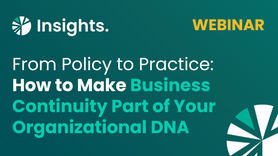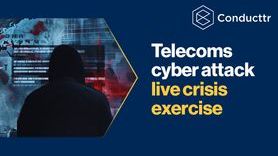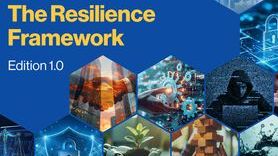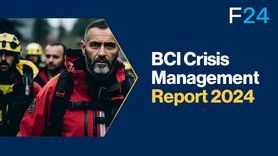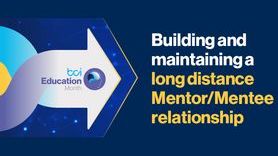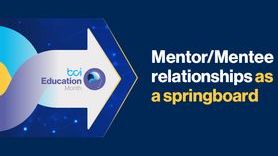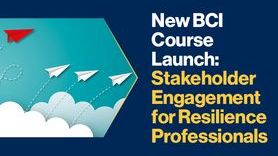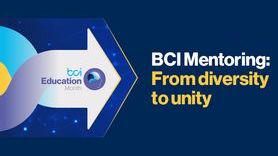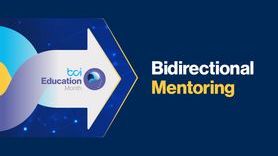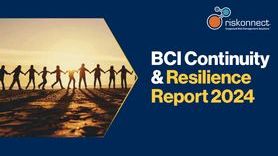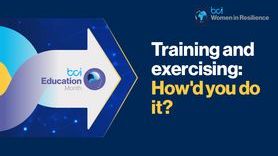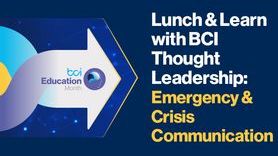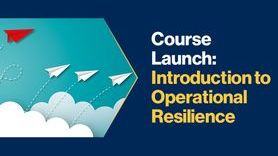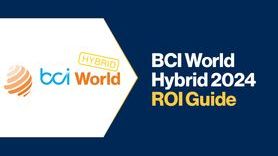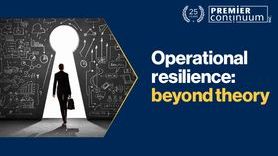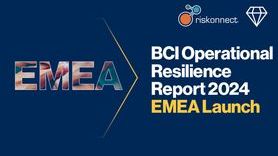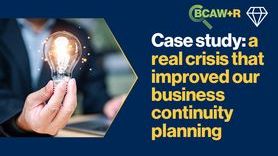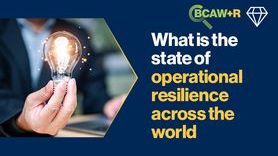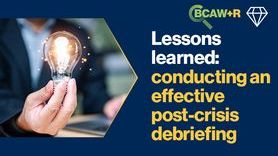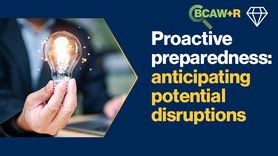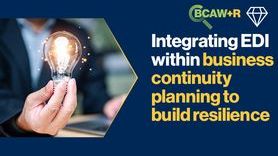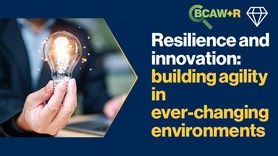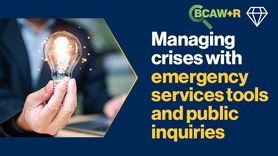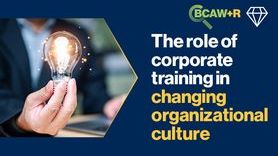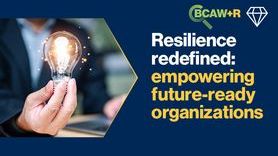In Conversation with Kush Srivastava MBCI
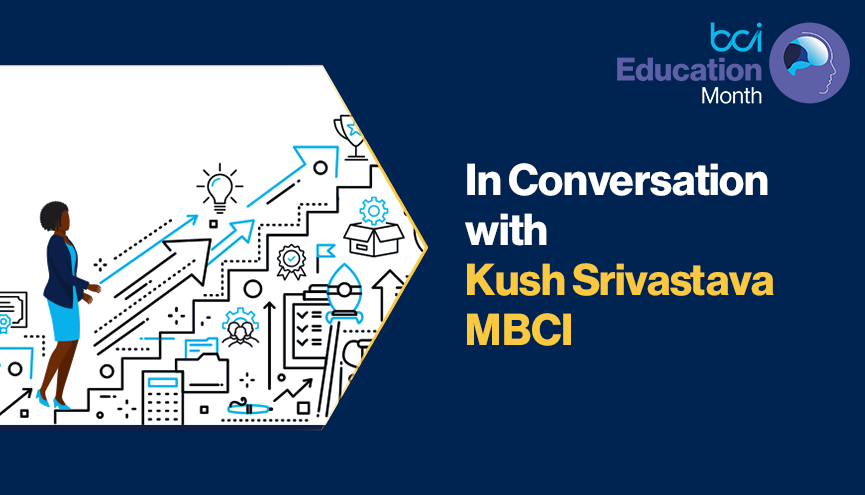

Kush Srivastava MBCI is a Senior BCM, Risk & Crisis Management Professional (in the UAE), in this interview he shares his thoughts about the role of education in training when building a career in the Business Continuity (BC) and Resilience industry.
Can you tell us about your experience in the field of BC and Resilience?
I have 15 years of hand-on experience in Business Continuity Management (BCM), as well as in the Crisis and Risk Management domains. I have worked across various regions and industries, including in India, Singapore, Sri Lanka and the Middle East. The sectors I have worked in include financial services and banking, IT and BPO (Business Process Outsourcing), as well as the oil and gas sector.
In an ever-changing environment, how important are training and education to make sure that you are prepared for newly emerging threats and risks?
Knowledge and information are both key to success, however, these should be used at the right time to yield the desired outcome. Training and education create the base for individuals to understand, act, react, and respond to dynamic business situations, which often include newly emerging threats and risks. Education will prepare you to look at the bigger picture in any situation and gives you confidence to act in a strategic way; while training helps you to validate the solution and makes you aware of any downsides.
What role have educational resources & BC training played in your career?
As mentioned in my earlier response, educators and trainers are catalysts for success. Knowledge and information are power and when these are shared then “power is multiplied”.
As an experienced BC practitioner, what skills would you say are important to build in this sector? What skills are you looking to reinforce/acquire in the future?
- Analytical skills
- Communication and influencing skills
- Planning and project management skills
- Ability to see the larger picture at all times
- Technologically savvy
I am also looking to reinforce or acquire professional skills in cyber security, build a good knowledge of IT and OT Systems Security and Infrastructure, and Supply Chain Risk Management (SCRM).
How important is it to share experience and knowledge with other BC practitioners, as well as with those just entering the industry? What are the most effective ways to do this?
Life is too short to make every mistake and learn from them, so the trick is to learn from others’ mistakes. It can be difficult to share your shortcomings and weaknesses with others, but there is a certain way to go about learning from these mistakes.
The trick is to do it in a manner that results in a win-win situation for both parties. Also, it is worth maintaining a keen observation with regards to the behavior of the BCM and Crisis leaders during peacetime as well as during emergencies and disruption. Their conduct while handling situations in normal circumstances can be a good learning input.
What are the pathways/opportunities available for young professionals that choose a career in BC & Resilience?
A career in BC and Resilience can be a very sustainable career choice. For a BC professional to be successful, I strongly believe that they will benefit immensely from additional educational qualifications or a degree that will set them apart from the crowd. They can then be seen as a professional who can be “deployed by the top management as a multi-talented and skilled resource with the ability to meet challenges and come out as a strategist with winning solutions”.
What can young professionals do to prepare themselves when joining this field from a different industry? What are organizations looking for from young professionals joining this field?
In order to have a strong foundation established early on in the careers of young professionals, it is essential that to have an open mind towards learning and gaining knowledge. Apart from their core educational qualifications, young professionals today have the option of equipping themselves with additional skills and proficiency. These skills will aid them in becoming more effective professionals. For example, certifications in domains like cloud computing, cyber security, information technology and security, risk and supply chain management, etc., will place these young professionals a “cut above the rest” and will definitely enhance their career options and career progression.
How can BC practitioners prepare to take the next step or advance in their BC/resilience career?
- Be aware of the micro and macro aspect of world economic, social and political situations, and how these factors can be effectively analyzed and the information be put to use to enhance organizational resiliency
- Acquire knowledge of new technologies and their application to building overall confidence across the organizational hierarchy, in respect of their ability to handle emergencies and crises successfully
- Strive to proliferate the significance of linking the Incident Management Plan, Emergency Response Plan, CMP, Business Continuity Plan, IT-Disaster Recovery Plan and MRP for enhancing organizational resilience and the effectiveness of these individual plans at the division, department and section level, as well as at the entity level
- Make sure that the Board, senior management and other leaders are aware of the status of BC preparedness, its effectiveness and the organization’s current crisis readiness
- Proliferate the value of BC and Resilience as an investment for the organization, wherein the benefits, advantages, downside and probable negative impact and financial losses are expressed in numbers and are known to the Board, top management and senior leadership, along with senior managers of the company. The information should be adequately percolated down the management hierarchy across the company for a unified understanding and response during any disruption.
Is there anything else you wish to share about your experience as a BC practitioner?
BC as a domain is still an evolving science. There are several factors that have contributed to organizations around the world realizing its value and contribution to organizational resilience. Some of the factors, like the pandemic, issues in cyber security and cyber threats, the increased risk in supply chain management, rapid digitization, urgent requirement of enhanced information security, etc., have exposed organizations in their ability to sail through emergency and crisis times. Such instances have also forced organizations to realize “whether they have placed all their organizational resiliency eggs in the same basket”.
Organizations, leaders, and all employees in the organization must be aware of the risk of uncertainty and should be ready with their Plan C and D, for any emergency situation, while maintaining the Plan B as the obvious BC plan for the organization at unit level, section or department level, and at organizational level.
Learn more about Education Month 2022:
To be the first to know about BCI News and more follow us on LinkedIn here, or on Twitter @TheBCEye




